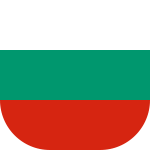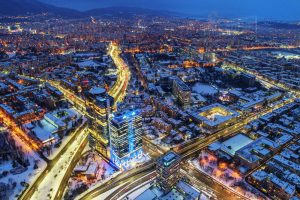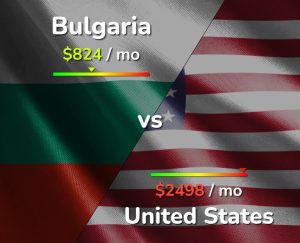Considering relocating to Bulgaria in 2025? This Southeastern European country offers a unique blend of affordability, rich culture, and natural beauty. However, like any destination, it comes with its own set of advantages and challenges.
Cost of Living in Bulgaria
Bulgaria stands out as one of the most budget-friendly countries in Europe. Here’s a breakdown of typical monthly expenses:
- Rent: A one-bedroom apartment in the city center ranges from €300 to €500, while outside the center, it can be as low as €200.
- Utilities: Including electricity, heating, and water, expect to pay between €80 and €150.
- Internet & Mobile: Costs range from €15 to €30, depending on the provider and plan.
- Groceries: A monthly grocery bill averages between €150 and €250.
- Dining Out: Eating at local restaurants can cost between €100 and €200 monthly.
- Public Transport: A monthly pass typically costs between €20 and €30.
Overall, a single person can live comfortably on €700 to €1,200 per month, depending on lifestyle and location.
Pros of Living in Bulgaria
1. Affordable Housing
Property prices in Bulgaria are significantly lower than in many Western European countries. This affordability extends to both renting and purchasing homes, making it an attractive option for expatriates and retirees.
2. Low Cost of Living
Daily expenses, including groceries, dining, and transportation, are much more affordable compared to Western Europe. This allows for a comfortable lifestyle without the high costs associated with other EU countries.
3. Rich Cultural Heritage
Bulgaria boasts a deep cultural history, with numerous UNESCO World Heritage sites, ancient ruins, and vibrant traditions. Cities like Plovdiv, one of Europe’s oldest, offer a mix of history and modernity.
4. Access to Nature
From the Black Sea coast to the Balkan Mountains, Bulgaria offers diverse landscapes for outdoor enthusiasts. Activities like hiking, skiing, and beach outings are readily available.
5. EU Membership
As a member of the European Union, Bulgaria provides residents with the benefits of EU citizenship, including freedom of movement, work, and access to various EU programs.
Cons of Living in Bulgaria
1. Bureaucratic Challenges
Navigating the administrative processes can be cumbersome. Expats often face challenges with paperwork, language barriers, and slow-moving bureaucracy.
2. Language Barrier
While English is spoken in major cities, Bulgarian is the official language. In rural areas, knowledge of Bulgarian is essential for daily interactions and accessing services.
3. Healthcare System
Although healthcare is affordable, the quality can vary. Public hospitals may lack modern equipment, and private healthcare can be costly.
4. Economic Disparities
While the cost of living is low, wages are also relatively low. This can be a challenge for those seeking employment in the country.
5. Infrastructure Gaps
In some regions, infrastructure such as roads and public services may not meet Western standards, potentially affecting daily life.
Conclusion
Bulgaria offers a unique blend of affordability, culture, and natural beauty. While there are challenges, many expatriates find the benefits outweigh the drawbacks. With careful planning and adaptability, Bulgaria can be a rewarding destination for those seeking a different lifestyle in Europe.





